Latest Blog
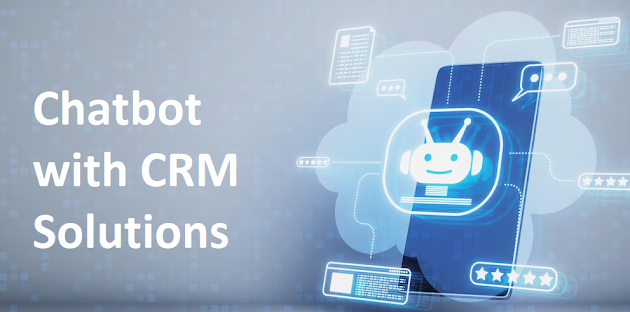
Transforming Customer Service: The Role of Chatbots in CRM Integration
In today's fast-paced digital world, businesses are constantly seeking innovative ways to streamline their operations and enhance customer satisfaction. One such innovation that has been making waves is the integration of chatbots with Customer Relationship Management (CRM) systems.
Chatbot and CRM
Chatbots: These are AI-powered virtual assistants designed to simulate conversations with users. They can handle a wide range of inquiries, provide information, and even perform tasks based on predefined rules or machine learning algorithms.
CRM Systems: CRM software helps businesses manage their interactions with current and potential customers. It stores valuable customer data, tracks interactions, and facilitates communication across various channels.
Combining the capabilities of chatbots with the data-driven insights of CRM systems.
The one thing that brings a chatbot and CRM system together is their focus on enhancing interactions with customers. Both tools aim to improve customer experience and streamline communication processes. This powerful combination has the potential to transform the way businesses interact with their customers, paving the way for more personalized and efficient experiences. Check this how?
When you connect the chatbot to a system that keeps track of customer info, called a CRM system. So, when a customer messages a company and one of those smart chatbots replies, it's not just giving you a standard answer. It's using all the info it knows about you to give you personalized recommendations or help you with your specific problem.
But it's not just about making customer life easier but also on the other hand by teaming up with this system, the chatbots also help the company. They can handle tasks like booking appointments or tracking orders, freeing up humans to focus on more important stuff.
Benefits of chatbot Integration in CRM
Here, in this blog section let’s delve into the benefits of duo.
Enhanced Customer Service: Chatbots integrated with CRM systems can provide instant support to customers around the clock. They can answer frequently asked questions, assist with basic troubleshooting, and even escalate complex issues to human agents when necessary. This ensures a seamless and consistent customer service experience, leading to higher satisfaction rates.
Personalized Interactions: By tapping into CRM data, chatbots solutions can deliver personalized recommendations and tailored responses based on each customer's preferences, purchase history, and past interactions. This personalized touch fosters stronger customer relationships and increases engagement.
Efficient Lead Management: Chatbots can qualify leads in real time by collecting relevant information and routing qualified leads directly to sales representatives. This streamlines the lead management process, enabling sales teams to focus their efforts on high-potential prospects and close deals faster.
Data Insights and Analytics: Integration with CRM systems allows businesses to gather valuable insights from chatbot interactions. They can analyze customer inquiries, feedback, and behavior patterns to identify trends, improve products/services, and make data-driven decisions to enhance overall performance.
Automation of Routine Tasks: Chatbots can automate repetitive tasks such as appointment scheduling, order tracking, and invoice generation by integrating with CRM systems. This frees up valuable time for employees to focus on more strategic tasks while improving operational efficiency.
Conclusion
The integration of chatbots with CRM systems represents a game-changer for businesses seeking to elevate their customer service, streamline operations, and drive growth. With the strategic blend of Chatbot in CRM companies can deliver personalized experiences, nurture customer relationships, and stay ahead in today's competitive landscape.
So, if you haven't already explored the possibilities of chatbot integration with CRM, now is the time to unlock it with Circle one CRM With the power of Botgo Chatbot they are ready to revolutionize your business operations.
Read More
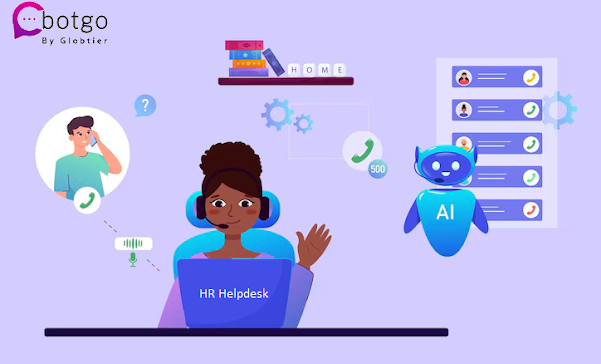
How HR Helpdesk Bots Revolutionize Workplace Support
Everyone is aware of HR's hectic role and function. As we know human resources (HR) departments play a pivotal role in ensuring employee satisfaction, compliance, and overall organizational success. However, the sheer volume of inquiries and administrative tasks can overwhelm HR professionals, hindering their ability to focus on strategic initiatives.
Enter the HR helpdesk bot – a digital assistant designed to streamline HR processes, enhance employee experiences, and alleviate the burden on HR teams. Let's delve into the role and benefits of using HR helpdesk bots in modern workplaces.
Challenges of the HR department
HR departments juggle a myriad of responsibilities, from managing payroll and benefits to addressing employee grievances and fostering a positive work culture. Amidst these tasks, responding to routine inquiries can consume a significant amount of time and resources. Traditional methods of handling these queries, such as email correspondence or phone calls, often lead to delays and inefficiencies. Moreover, the repetitive nature of these inquiries can drain HR personnel's productivity and morale.
Helping Hand: The HR Helpdesk Bot
The emergence of AI-powered chatbots has revolutionized HR support functions. HR helpdesk bots act as virtual assistants capable of handling a wide range of employee queries and administrative tasks round-the-clock. These bots leverage Natural Language Processing (NLP) algorithms to understand and respond to user inquiries in real-time, providing instant solutions and information.
Streamlined Employee Support
One of the primary benefits of HR bots is their ability to provide immediate assistance to employees. Whether it's requesting time off, accessing HR policies, or seeking clarification on benefits, employees can interact with the bot anytime, anywhere, without having to wait for human intervention. This instant access to information enhances employee satisfaction and reduces frustration associated with delays in response.
24/7 Availability
Unlike human HR representatives who adhere to office hours, HR helpdesk bots are available round-the-clock. This accessibility ensures that employees can seek assistance at their convenience, even outside traditional working hours. Whether it's a query that arises during a late-night brainstorming session or a last-minute leave request, employees can rely on the bot to provide timely support, fostering a culture of flexibility and responsiveness within the organization.
Efficiency and Cost Savings
By automating routine inquiries and tasks, HR helpdesk bots free up valuable time for HR professionals to focus on strategic initiatives and high-priority activities. This increased efficiency not only boosts productivity but also reduces operational costs associated with manual administrative work. Organizations can redirect resources toward initiatives that drive innovation, employee development, and organizational growth.
Personalized Experiences
Contrary to common misconceptions, HR bots offer more than just canned responses. Advanced chatbots are equipped with machine-learning capabilities that enable them to learn from interactions and personalize responses based on individual preferences and past interactions. This personalization enhances the overall employee experience, making interactions with the bot more engaging, relevant, and effective.
Data-Driven Insights
Another valuable aspect of HR helpdesk bots is their ability to gather and analyze data regarding employee inquiries and trends. By monitoring frequently asked questions, common pain points, and emerging issues, HR teams can gain valuable insights into areas that require attention or improvement. This data-driven approach empowers organizations to make informed decisions, implement targeted interventions, and continuously enhance their HR processes.
Conclusion
HR helpdesk bots represent a transformative solution for modern workplaces, offering a myriad of benefits for both employees and HR professionals. By automating routine inquiries, providing 24/7 support, and leveraging data-driven insights, these bots streamline HR processes, enhance employee experiences, and drive organizational efficiency. As technology continues to evolve, HR helpdesk bots will play an increasingly integral role in shaping the future of work, empowering organizations to thrive in a dynamic and competitive landscape.
Read More
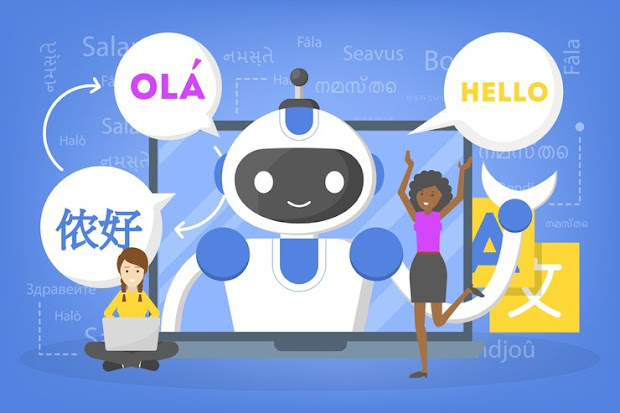
Seamless Conversations, Anywhere: The Multilingual Chatbot Solution
In today's interconnected world, communication knows no boundaries. Whether you're conducting business, traveling, or simply connecting with friends, the ability to converse seamlessly across languages is increasingly essential. Enter the multilingual chatbot solution – a game-changer in bridging language gaps and fostering effortless communication to all the business.
According to research by Grand View Research, the global chatbot market size is projected to reach USD 1.25 billion by 2025, with multilingual capabilities being a significant driver of this growth. This surge in demand is not surprising considering the diverse and interconnected nature of today's global landscape.
Multinational corporations, e-commerce platforms, and even small businesses are embracing multilingual chatbots to cater to diverse customer bases. These bots not only streamline customer support but also enhance user experiences by providing assistance in multiple languages.
How Multilingual Chatbots Work:
Behind the scenes, multilingual chatbots leverage natural language processing (NLP) and machine learning algorithms to understand and respond to user queries in different languages. These bots are trained on vast datasets comprising multilingual conversations, enabling them to recognize linguistic nuances and provide accurate responses.
Moreover, advancements in AI technology have led to the development of neural machine translation (NMT), which enhances the quality of translation outputs, making conversations feel more natural and fluid.
Benefits of Multilingual Chatbots:
Improved Customer Service: It offer round-the-clock support in multiple languages, ensuring that customers receive prompt assistance regardless of their location or language proficiency.
Enhanced User Engagement: By breaking down language barriers, multilingual chatbots foster meaningful interactions with users, leading to higher engagement and satisfaction levels.
Cost-Efficiency: Automating customer support through chatbots can significantly reduce operational costs associated with hiring and training multilingual support agents.
Global Reach: Businesses can expand their reach to international markets without worrying about language barriers, thereby tapping into new opportunities for growth and expansion.
Real-World Applications:
The versatility of multilingual chatbots extends across various industries:
Travel and Hospitality: Multilingual chatbots assist travellers with booking accommodations, providing local recommendations, and offering real-time language translation services.
E-commerce: Online retailers utilize multilingual chatbots to support customers in their native languages, leading to increased sales and customer satisfaction.
Healthcare: Multilingual chatbots facilitate communication between healthcare providers and patients from diverse linguistic backgrounds, ensuring accurate diagnosis and treatment.
Embracing a Multilingual Future:
As the world becomes increasingly interconnected, the need for seamless cross-lingual communication continues to grow. Multilingual chatbots represent a significant step towards realizing this vision by empowering individuals and businesses to communicate effortlessly across languages.
Conclusion
If you’re a business owner, or simply someone who values meaningful connections, the advent of multilingual chatbots heralds a future where language is no longer a barrier but a bridge to deeper understanding and collaboration.
So, here's to seamless conversations, anywhere, anytime – courtesy of the multilingual chatbot solution!
Read More
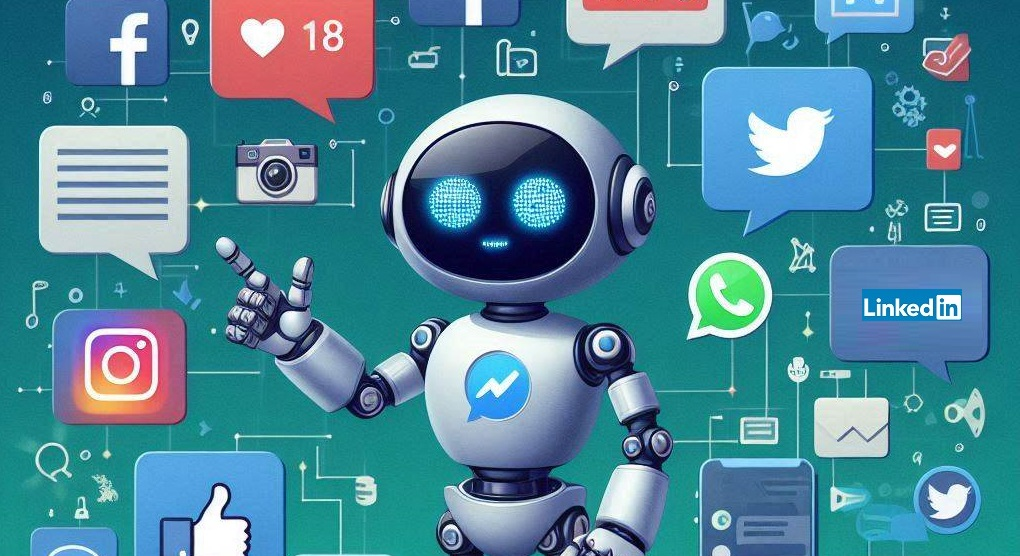
Top 5 Benefits of Social Media Chatbots for Brand Visibility
Social media's reach is everywhere now, as evidenced by the 90% of social media users actively following at least one brand. The social platform is not just about posting content anymore; it's about engaging with your audience in real-time. Handling many conversations at the same time can be tough even if you do care about your people. That's why “social media chatbots” come into play.
These virtual assistants hold the power to revolutionize your online presence and take your brand to new heights. They help businesses manage chats and offer other advantages too. In this blog, we'll talk about how this chatbot can boost your brand presence.
5 Ways Social Media Chatbot Can Boost Your Brand's Presence
Answer Customer Queries: When someone visits your social media page and has a question about your product, obviously you want them to solve their queries as soon as possible. We all wish that they don't have to wait long for an answer. Your chatbot here quickly responds and makes sure that no question goes unanswered. This helps build trust and reliability in your brand effortlessly.
Increase Sales of Your Products and Services: Chatbots aren't just for answering FAQs; they're also excellent sales assistants. With the ability to recommend products based on customer preferences and purchase history, chatbots can guide users seamlessly through the sales funnel. By providing personalized recommendations and instant purchase options, they transform casual browsers into paying customers, driving sales like never before.
Understand Your Customers Better: One of the greatest assets of chatbots is their knack for data collection. By analyzing user interactions, chatbots can gather invaluable insights into customer behavior, preferences, and pain points. This wealth of information equips you with the knowledge to tailor your marketing strategies, develop targeted campaigns, and ultimately, better serve your audience.
Increase User Engagement on Your Website: Keeping users engaged on your website is crucial for retaining their interest and driving conversions. Chatbots play a pivotal role in this endeavor by providing interactive and personalized experiences. Whether it's guiding users through your content, recommending relevant articles, or initiating conversations, chatbots keep visitors hooked and encourage them to explore more of what your brand has to offer.
Personalize User Experience: In today's hyper-connected world, personalization is key to capturing and retaining audience attention. Chatbots excel in delivering tailored experiences by leveraging user data to customize interactions. From greeting users by name to offering personalized product recommendations, chatbots make every interaction feel unique and meaningful, fostering stronger connections between your brand and its audience.
Conclusion
Social media chatbots are not just trendy tech gimmicks; they're invaluable assets for brands looking to amplify their online presence. Instead of using pre-built chatbot solutions, you can use Botgo Custom chatbot development service to meet the unique goals and functions of the business.
A chatbot that is tailored specifically to the needs and requirements of your business or organization.
This customization allows the chatbot to better serve the organization's specific purposes, such as customer service, lead generation, or automating tasks that integrate with relevant systems, understanding industry-specific terminology, and providing tailored responses to users' queries.
You can elevate your brand to new heights of success in the digital landscape with these benefits. So why wait? Embrace the chatbot revolution and watch your brand soar!
Read More

10 Benefits of Process Automation: How It Can Transform Your Business
In today's fast-paced business world, staying ahead of the competition is crucial. Companies are constantly seeking ways to streamline their operations, enhance efficiency, and boost productivity. One powerful solution that many businesses are turning to is process automation. In this blog, we'll explore 10 key benefits of process automation that can help your business thrive.
10 benefits of process automation that can help your business :-
Increased Efficiency: Botgo, an AI platform and process automation company, says manual tasks can be time-consuming and prone to errors. In that place, process automation replaces repetitive tasks with automated workflows, reducing the time and effort required to complete them. This efficiency boost allows employees to focus on more strategic and value-added activities.
Cost Savings: Automating repetitive tasks offers a significant advantage in reducing operational costs. By replacing manual labor with automation, businesses can cut down on labour expenses by 50-60%. Automation not only streamlines processes but also enhances accuracy, mitigating the risk of costly human errors. This cost-saving measure allows companies to reallocate funds previously spent on salaries and benefits towards core operations, ultimately optimizing resource utilization and boosting overall efficiency.
Improved Accuracy: Human error is inevitable, but with process automation, the risk of errors is greatly reduced. Automated systems follow predefined rules and workflows consistently, leading to greater accuracy and reliability in processes and outputs.
Faster Turnaround Times: Automation accelerates the pace of tasks and processes, leading to faster turnaround times. This enables businesses to respond more quickly to customer demands, market changes, and business opportunities, ultimately enhancing customer satisfaction and loyalty.
Enhanced Scalability: As businesses grow and evolve, scalability becomes essential. Process automation provides the scalability needed to handle increased workloads and growing demands without the need for additional resources or infrastructure.
Better Resource Allocation: Automation allows businesses to allocate resources more effectively by optimizing workflows and reallocating manpower to more strategic areas of the business. This ensures that resources are utilized efficiently and that business objectives are met more effectively.
Increased Compliance and Consistency: Compliance with regulations and standards is critical for businesses operating in regulated industries. Process automation ensures adherence to compliance requirements by enforcing standardized processes and maintaining accurate records, reducing the risk of non-compliance penalties and fines.
Enhanced Visibility and Control: Automation provides businesses with greater visibility into their operations by centralizing data and processes. This increased visibility allows businesses to track progress, identify bottlenecks, and make informed decisions in real-time, leading to better control and management of business operations.
Empowered Decision-Making: With access to real-time data and insights, decision-makers can make more informed and data-driven decisions. Automation enables businesses to collect, analyze, and interpret data more efficiently, empowering decision-makers to identify trends, anticipate market changes, and capitalize on opportunities.
Competitive Advantage: In today's competitive business landscape, gaining a competitive edge is essential for success. Process automation enables businesses to differentiate themselves by delivering products and services faster, more accurately, and at a lower cost than their competitors, giving them a distinct advantage in the market.
Conclusion
According to Gartner's prediction for 2024, nearly seven out of ten daily management tasks are expected to be fully automated. The field of automation is experiencing rapid growth, making it one of the fastest-growing segments in the software industry. Currently valued at $6.1 billion, automation is forecasted to expand at a remarkable rate of 200%.
As we are aware of process automation offers a multitude of benefits that can transform businesses and drive success in today's competitive environment. From increased efficiency and cost savings to improved accuracy and scalability, the advantages of automation are clear. By embracing automation, businesses can streamline their operations, enhance productivity, and position themselves for long-term success.
Read More
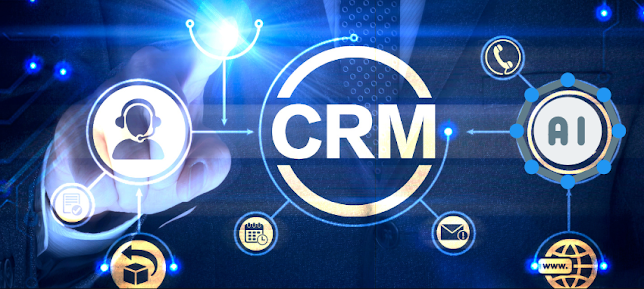
Role & Benefits of Using CRM with AI Chatbot for Small, Mid & Large Businesses
We are in an era of technology where it is no longer surprising to see machines outperforming humans in key business areas, such as sales. Sales is a crucial department in any business, where success stories are made and celebrated. For large enterprises, budget constraints are often less of a challenge due to their high revenue streams, enabling them to scale operations more easily. However, for mid-sized and especially small businesses, capital must be invested wisely. What if there was a solution that works equally well for businesses of all sizes? Enter CRM integrated with AI chatbots—a powerful combination that can drive efficiency, engagement, and growth across the board.
This powerful combination offers numerous benefits, revolutionizing how businesses interact with their customers. Botgo, a leading service provider in this domain, offers cutting-edge CRM solutions integrated with AI chatbots, providing a comprehensive solution for businesses aiming to thrive in the digital age.
The Role of CRM in Modern Businesses-
CRM stands for Customer Relationship Management. For businesses, a relationship with customers is a valuable asset. That's why every business continuously works on strengthening these relationships. CRM provides a solution that enables businesses to focus on other core areas, as it efficiently manages customer interactions and data. Like how? Check this.
A CRM application for sales is pivotal in managing customer relationships, tracking interactions, and organizing sales data. It helps businesses gain valuable insights into customer behavior, preferences, and needs, enabling more personalized and effective marketing strategies.
With CRM solutions like those offered by Botgo, companies can automate routine tasks, improve customer service, and drive sales growth.
The Power of AI Chatbots-
AI chatbots are transforming customer service by providing instant, 24/7 support. These intelligent bots can handle a wide range of tasks, from answering frequently asked questions to guiding customers through the sales funnel. By integrating AI chatbots with CRM systems, businesses can offer seamless, efficient, and personalized customer experiences.
Benefits of Using CRM with AI Chatbots-
1. Enhanced Customer Engagement
Integrating CRM with AI chatbots allows businesses to engage with customers more effectively. According to a study by Salesforce, businesses that use AI in their CRM systems see a 30% increase in customer satisfaction. Chatbots can quickly access CRM data to provide personalized responses, making customers feel valued and understood.
2. Improved Efficiency and Productivity
AI chatbots can handle routine inquiries and tasks, freeing up human agents to focus on more complex issues. This not only improves efficiency but also reduces operational costs. For instance, IBM reported that businesses using AI chatbots can save up to 30% on customer service costs. When combined with a CRM system, these bots can automate data entry and management, further enhancing productivity.
3. Better Data Management and Insights
CRMs integrated with AI chatbots can collect and analyze vast amounts of customer data in real-time. This provides businesses with actionable insights that can drive decision-making and strategy. According to a report by Grand View Research, the global CRM market size is expected to reach $114.4 billion by 2027, reflecting the growing importance of data-driven customer management.
4. Increased Sales and Revenue
A CRM application for sales, enhanced with AI chatbots, can significantly boost sales performance. Chatbots can identify potential leads, qualify them, and even assist in closing deals by providing relevant information at the right time. A study by McKinsey & Company found that businesses using AI can increase their sales by up to 15%.
5. Scalability for Growing Businesses
Whether you run a small startup or a large enterprise, integrating CRM with AI chatbots is scalable to your business needs. Small businesses can start with basic functionalities and gradually expand as they grow, while large enterprises can leverage advanced features to manage extensive customer bases and complex sales processes.
Why Choose Botgo?
Botgo becoming CRM and AI chatbot solutions. With Botgo, businesses can enjoy a seamless, user-friendly interface, robust data management, and cutting-edge AI technology. Botgo’s integrated with Circle One’s CRM solutions are designed to enhance customer satisfaction, streamline operations, and drive sales growth, making it an ideal choice for businesses of all sizes.
In conclusion, integrating a CRM system with an AI chatbot offers a multitude of benefits that can significantly enhance business operations, customer engagement, and sales performance. Whether you're a small, mid, or large business, leveraging the power of CRM and AI chatbots through solutions like those offered by Botgo can propel your business to new heights in the digital age.
Read More
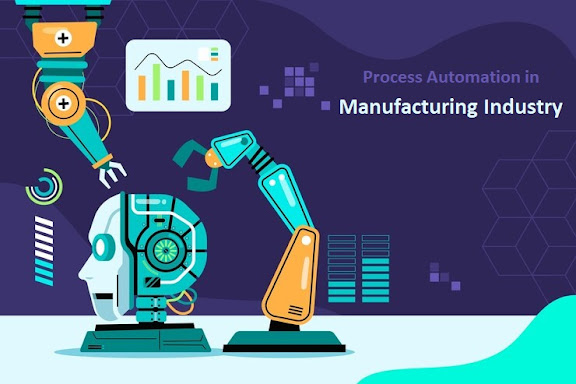
The Role and Impact of Process Automation in the Manufacturing Industry
The way things are made (manufactured) has changed a lot over time. Picture the past, where skilled artisans crafted things with care and the sound of manual production filled the air. From basic tools to today's advanced machinery, the history of making things shows how smart humans are. Nowadays, technology is the big player, changing how we create stuff.
One key change is the move towards automation. This means using machines, robots, and computers to do jobs that people used to do. Automation isn't just about making things faster – it's about making them better. It's like a magic wand that helps factories work smarter. The cool thing is, that this change is happening quickly, transforming how things are made and making businesses more competitive and innovative.
This blog aims to shed light on the pivotal role and impactful outcomes of process automation in the manufacturing industry, offering valuable insights for business leaders navigating the complexities of modern industrial production.
The Evolution of Manufacturing Processes:
Historically, manufacturing processes were labor-intensive, time-consuming, and prone to errors. With the advent of automation, however, the industry witnessed a paradigm shift. Process automation involves the use of technology to perform tasks that were traditionally carried out by humans. This ranges from simple repetitive tasks to complex operations, all aimed at streamlining and optimizing production workflows.
Key Components of Process Automation in Manufacturing:
1. Robotics:
2. Computer-Aided Design and Manufacturing (CAD/CAM)
3. Machine Vision:
4. Programmable Logic Controllers (PLCs)
5. IoT (Internet of Things)
6.AI and Machine Learning
Role and Benefits Process Automation for Manufacturing Industry:
Let's explore the role of each key component in process automation in the manufacturing industry:
Robotics:
Role: Robotics involves the use of automated machines or robots to perform tasks traditionally carried out by humans. In manufacturing, robots are employed for various functions such as assembly, welding, painting, and material handling.
Benefits: Improved efficiency, increased precision, reduced labor costs, enhanced safety, and the ability to operate in hazardous environments.
Computer-Aided Design and Manufacturing (CAD/CAM):
Role: CAD involves the creation of digital models of products, while CAM is the use of computers to control manufacturing processes. Together, they enable the design and production of complex components with high accuracy.
Benefits: Faster design iterations, reduced prototyping costs, improved precision in manufacturing, and seamless integration between design and production processes.
Machine Vision:
Role: Machine vision involves the use of cameras and sensors to enable machines to "see" and make decisions based on visual input. In manufacturing, it is used for quality control, inspection, and guidance.
Benefits: Increased accuracy in inspection, reduced defects, faster production cycles, and the ability to detect subtle defects that may be hard for the human eye to discern.
Programmable Logic Controllers (PLCs):
Role: PLCs are industrial digital computers used to control manufacturing processes, such as assembly lines and robotic devices. They automate electromechanical processes by reading inputs, making decisions based on pre-programmed logic, and controlling outputs.
Benefits: Improved control and consistency in manufacturing processes, faster response times, reduced downtime, and easier adaptability to changes in production requirements.
Internet of Things (IoT):
Role: IoT involves connecting physical devices and sensors to the internet, allowing them to collect and exchange data. In manufacturing, IoT is used for real-time monitoring, predictive maintenance, and optimization of processes.
Benefits: By embracing IoT in manufacturing, companies gain a comprehensive understanding of their operations through real-time data collection. This information empowers manufacturers to make informed, data-driven decisions. Improved efficiency, reduced waste, and increased production are among the tangible benefits of IoT. Connecting devices across the manufacturing ecosystem, whether within a factory or globally, enhances overall operational visibility, leading to smarter resource allocation and streamlined processes. As a result, manufacturers can achieve greater efficiency and responsiveness to market demands.
AI and Machine Learning:
Role: AI and machine learning involve algorithms and models that can learn from data and make intelligent decisions. They are applied for predictive maintenance, quality control, demand forecasting, and process optimization in manufacturing.
Benefits: Integrating AI and machine learning in manufacturing leads to increased automation and improved performance over time. Such inclusion of technologies enables real-time data analysis, facilitating predictive maintenance, quality control, and process optimization. By adapting to changing conditions and learning from historical data, AI and machine learning contribute to enhanced operational efficiency and the ability of manufacturers to stay competitive in a dynamic global market.
Read More

Enhance Your Customer Service: The Best Time to Implement a Chatbot!
A business revolves around its customers. How your customers feel about you today and the impact you leave on their experience define your business's reputation and its growth potential. In 2024, with the focus on enhancing the customer experience, chatbots don't need an introduction. As a conversation tool, they have become a crucial element for many businesses in improving communication and fostering personalized interactions between customers and businesses. Earlier, chatbots were rule-based, but with time and numerous advancements, they have evolved into a must-have innovation. In today's competitive business landscape, staying ahead of the curve is essential. Deploying a chatbot not only meets customer expectations but also sets your business apart from competitors who have yet to embrace this technology. It demonstrates your commitment to innovation and customer satisfaction, giving you a competitive edge in the market.
With advancements in artificial intelligence (AI) and natural language processing (NLP), chatbots have evolved from simple scripted responders to intelligent virtual assistants capable of handling complex interactions. If you're still on the fence about deploying a chatbot for your business, here's why today is the perfect time to leap:
Benefits of AI Chatbots:
Here are a few reasons, which surely convince you to have it now.
Changing Customer Expectations: Consumers today expect instant responses and round-the-clock support. It’s time for every business to meet these expectations by providing instant assistance, answering queries, and guiding users through various processes, regardless of the time of day.
Why 9 to 5 only when you can be 24/7 Available to your customer: Unlike human agents who have limited working hours, chatbots do not feel challenges against time. They are available 24/7, and with them, you can ensure that customers can get assistance whenever they need it. This round-the-clock availability not only improves customer satisfaction but also helps in capturing leads and converting them into sales, even during non-business hours.
Save a buck, where possible: Hiring and training customer service representatives can be costly, especially for small and medium-sized businesses. Chatbots offer a cost-effective alternative by automating repetitive tasks and handling a large volume of inquiries simultaneously, thereby reducing the need for human intervention and lowering operational costs.
Scalability all of us want: As your business grows, so does the volume of customer inquiries. Scaling up your customer support team to meet this demand can be challenging and time-consuming. Chatbots can effortlessly scale your business, handling an increasing number of queries without the need for additional resources or infrastructure.
Personalized Customer Experience: Modern chatbots development company like Botgo leverage AI and machine learning algorithms to analyze customer data and personalize interactions based on individual preferences and behaviour. By delivering tailored recommendations, product suggestions, and targeted marketing messages, chatbots enhance the overall customer experience and foster brand loyalty.
Improved business Efficiency: Chatbots excel at automating routine tasks such as answering frequently asked questions, processing orders, and scheduling appointments. By offloading these tasks to chatbots, businesses can free up human agents to focus on more complex issues that require human intervention, thereby improving overall efficiency and productivity.
Omni-channel Support: With the proliferation of communication channels such as websites, social media, messaging apps, and voice assistants, businesses need to provide seamless support across multiple platforms. Chatbots can be integrated with various channels, ensuring a consistent and cohesive customer experience regardless of the channel used.
Data Insights: Every interaction with a chatbot generates valuable data that can be used to gain insights into customer behavior, preferences, and pain points. By analyzing this data, businesses can identify trends, optimize processes, and make data-driven decisions to improve products and services.
Are you ready?
Do it today, or leave it for tomorrow. One thing that changes with the time is growth. Seize the opportunity to enhance business by deploying a chatbot in your business. As AI technology continues to advance, chatbots will only become more sophisticated and capable of handling complex tasks. It’s time for future-proofing your business and positioning yourself to leverage the latest advancements in AI technology for years to come.
Take the plunge today and give your business the competitive edge it deserves with a chatbot deployment today.
